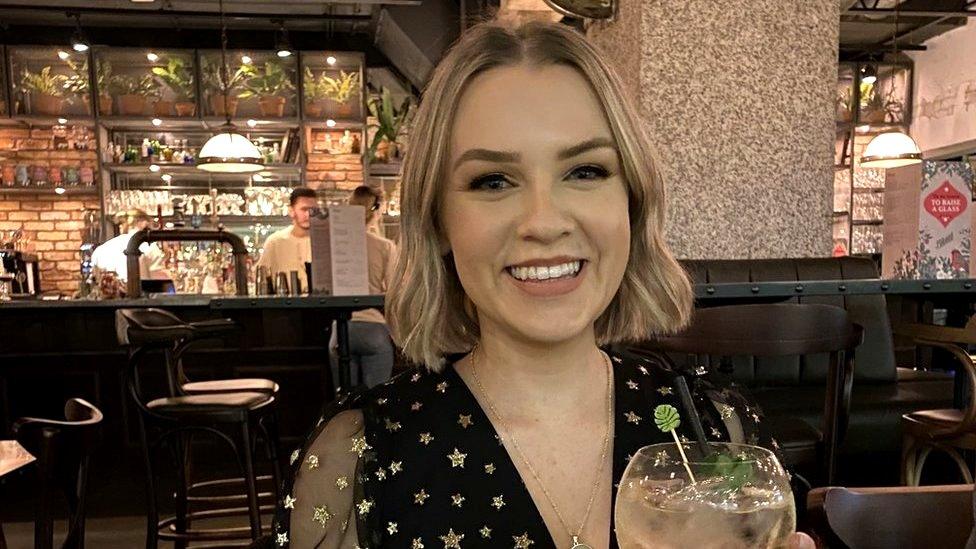The Sober Diaries: My challenge has just started
- Published
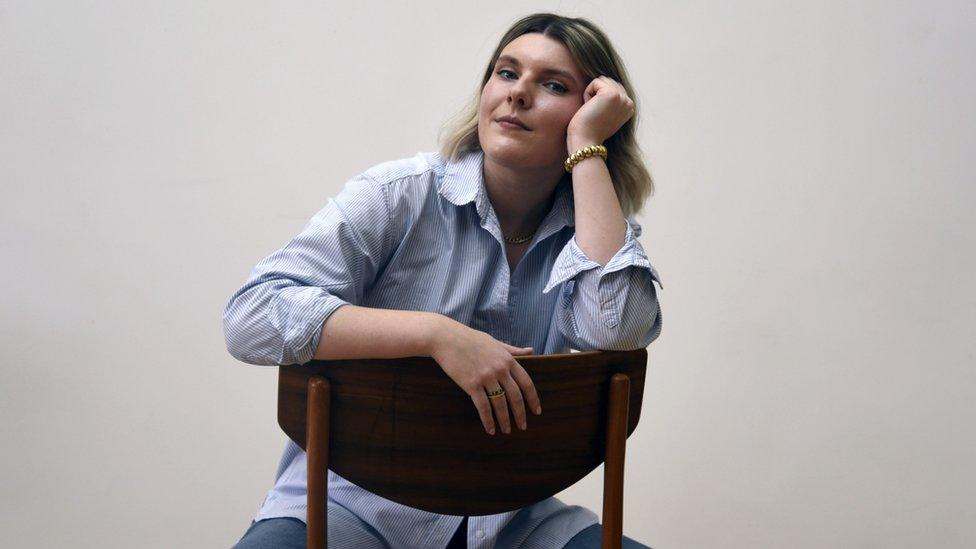
With Dry January now almost over for the many who stopped drinking this month, my test has only just begun. At the age of 25, I have decided to stop drinking alcohol for an entire year.
Towards the end of 2023, I began reflecting on the reasons why I drink. I was "sober curious" - a phrase that has risen in popularity in the past three years.
Over the past 12 months, I had made a few new friends who were sober, and they were some of the most fun people I knew.
Percolating on the idea over the festive period, when drinking became a regularity and the mornings after fairly groggy, I proposed the idea to my partner on 28 December.
"I've been thinking," I said. "I might give up alcohol next year. What do you think?"
After a brief pause, I was given an enthusiastic: "Let's do it!"
So I am not alone in this challenge, which makes it easier - in theory.
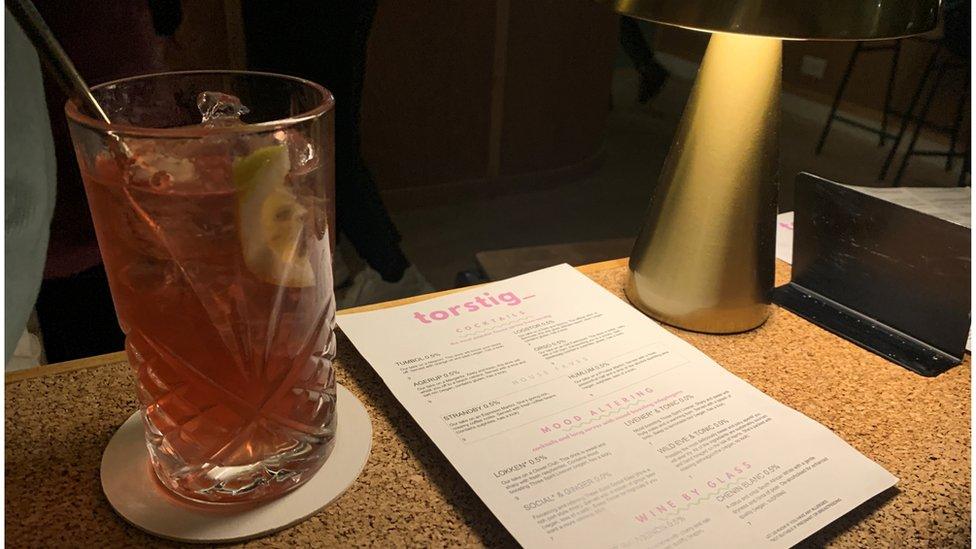
A low and no-alcohol bar in Hoxton, east London, was booked out in January
This first month was more painless than expected, in part because I knew many other people who were doing Dry January, and also because I had purposefully filled my diary with events that did not centre around alcohol.
I took up swimming, promptly followed by a long spell in the sauna, once a week. The sport seems to be relaxing both my muscles and mind simultaneously.
Is it the same as a nice glass of Rioja? No. But it's pretty nice, and about the same price.
The alcohol cabinet
My first drink was a Smirnoff Ice aged 16. I took a pack of four to a party and had a glass of water after each one because I was scared to get drunk. I don't think I finished the pack.
My tastes have matured since. My alcohol cabinet now includes port, sherry, wine, gin, vodka and rum.
The sherry would often come out before dinner, and I'd be drinking wine about three nights a week.
Dinner parties and nights out would get boozier, with 2am tequila shots on the dance floor followed by a box of chips on the Tube home.
I am healthy, I am wealthy...
My motivations for this year-long challenge were fourfold.
I wanted to see what socialising without alcohol felt like, and whether I could continue to have as much fun when seeing friends without the booze.
Its impact on my monthly spending was also to go under the microscope - although the rising price of alcohol-free cocktails may limit my savings.
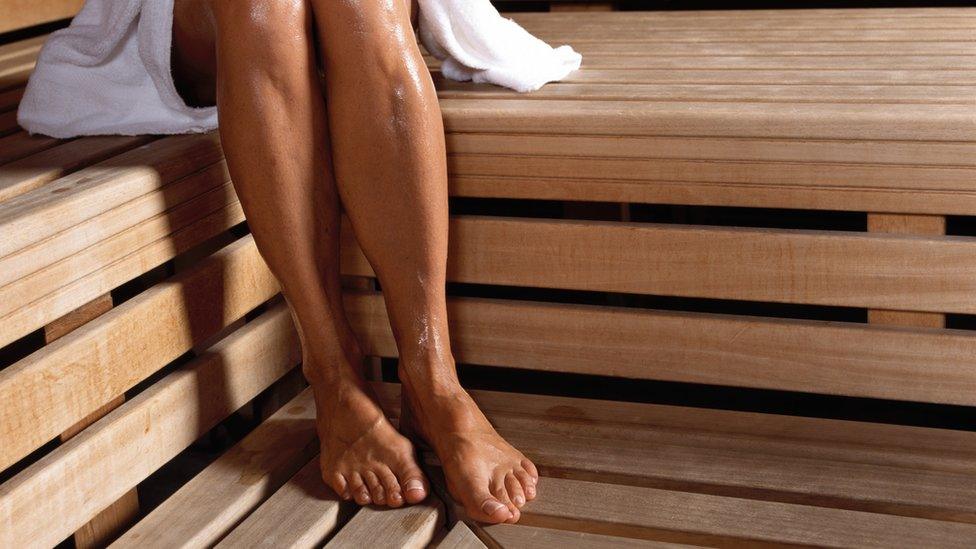
A swim, followed by a visit to the sauna, is proving to be pretty relaxing
And waking up full of energy without "hang-xiety" (a feeling of dread from the night before), and seeing how sobriety affected my body were also key motivators.
There was also a part of me that wanted to buck societal norms. Yes, I'm 25 and sober - so what?
"So what? You're no fun. Come on, just have one! Don't be boring, you're wasting your youth," were the kinds of protestations I expected to come my way.
What to drink instead?
This month has been spent taste-testing some of my alcohol-free options.
I visited Torstig, a pop-up alcohol free bar in Hoxton, east London, whose owners say they have "spent years finding the best low and no drinks from all over the world".
Co-founders Emmi Edwards, 31, and Luke Cousins, 36, opened their first bar in Brighton a year ago, and spent January testing the market in Hoxton.
"We've been fully booked every night," Emmi said. "We had a queue out the door one night.
"Really, it's people from all different backgrounds, heritages, and they are all very much open-minded to not drinking as much alcohol."
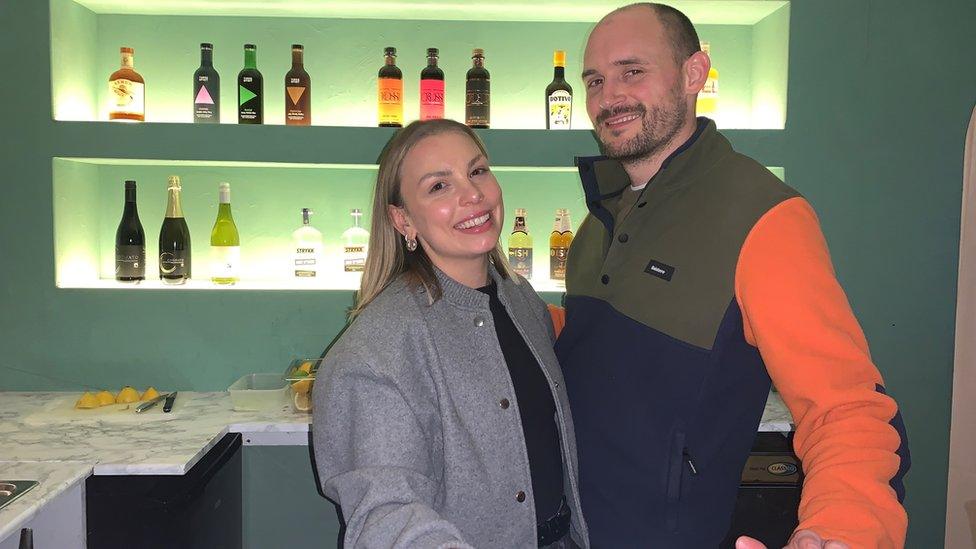
Emmi Edwards and Luke Cousins told me that non-alcoholic spirits can often be more expensive than alcoholic ones
Luke said they launched the first bar after he developed an alcohol intolerance following Covid, with Emmi becoming sober "in solidarity".
"We both work in the City, we both have quite corporate jobs, and really found it difficult going out and socialising when we don't drink alcohol," Emmi told me.
"I realised I didn't enjoy drinking, I didn't want to do it any more, so we were both sober by 2021.
"It was really hard to find places to go and socialise. So we created a space because we wanted it."
Luke adds: "We wanted to showcase the best products, and often they are small batch, and they are not really mainstream."
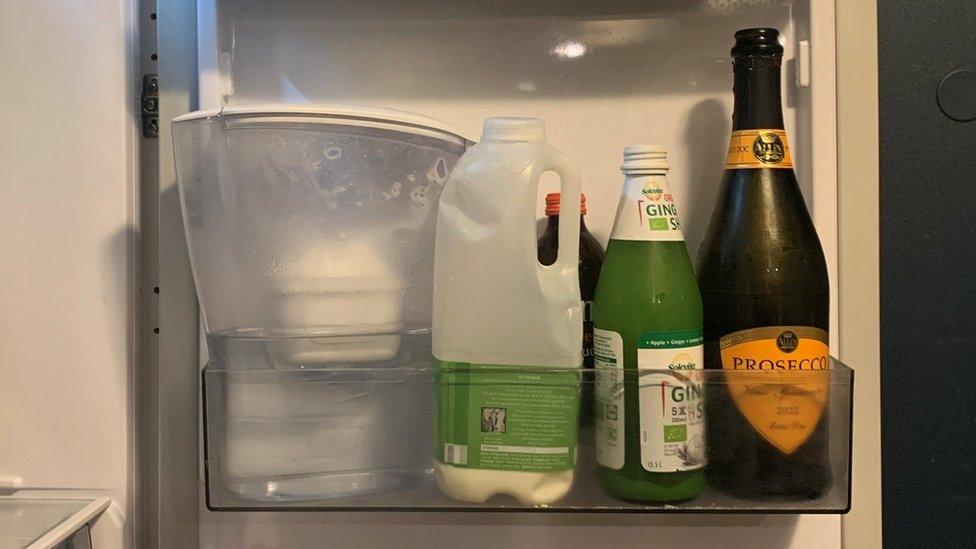
An open bottle of prosecco slowly went flat in my fridge after New Year's Eve
The couple explained that some non-alcoholic drinks could cost the same as regular cocktails due to the manufacturing process.
"Alcohol-free drinks, or de-alcoholised drinks, kind of cost more money to make than alcoholic drinks, and that's often because they start as an alcoholic drink, and they go through even more processes to take that alcohol out again," Emmi said.
"When they take that alcohol out, they need to rebalance the flavours, maybe add a few preservatives to keep it fresh, because alcohol kills bacteria."
So perhaps any money-saving will be cancelled out this year if I choose to swap my wine for de-alcoholised drinks. Definitely one to watch.
I'll be back with more from my Sober Diaries soon but, for now, I'll leave you to sip on your pint - or, if you're in the same boat as me, to ponder the thought that there are other people out there who are also reassessing their relationship with alcohol.
I will be joining BBC Radio London's Eddie Nestor on Wednesday to talk more about the challenge.

Listen to the best of BBC Radio London on Sounds and follow BBC London on Facebook, external, X, external and Instagram, external. Send your story ideas to hello.bbclondon@bbc.co.uk
- Published31 January 2024
